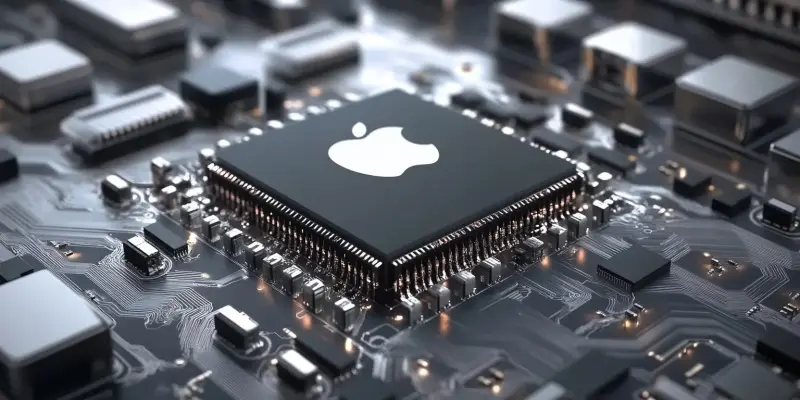The race for cutting-edge technology continues, with Apple poised to take its next significant leap forward with the introduction of the M5 chip series. Expected to enter production in the first half of 2025, the new series will include the M5, M5 Pro, M5 Max, and M5 Ultra. These chips will utilize TSMC’s advanced N3P node, signaling a major advancement in performance and power efficiency for Apple’s future devices.
The anticipation for Apple’s M5 chips stems from the promise of improved performance and efficiency over their predecessors. Leveraging a 3nm process, the M5 chip series will not transition to a 2nm process but will still represent a substantial technological leap. Upcoming Apple products like the MacBook Pro, MacBook Air, and OLED iPad Pro are expected to integrate these chips between the spring of 2025 and the first half of 2026. Devices featuring the M5 Ultra chip will be available in late 2026.
Expanding the Horizons of Thermal Performance
The M5 Pro, M5 Max, and M5 Ultra from Apple are notable for using SoIC-mH packaging, a technology that significantly improves thermal performance and yield. This innovative packaging isn’t exclusive to Apple; major players like AMD, AWS, and Qualcomm are also anticipated to adopt it. Enhanced thermal performance will not only make devices more efficient but also extend battery life, meeting consumer expectations for durable, high-performance gadgets.
Apple’s commitment to upgrading the performance and power efficiency of its devices is evident in its latest releases. The current MacBook Pro, iMac, and Mac mini now come with M4-series chips, demonstrating Apple’s dedication to staying competitive. The MacBook Air is set to join this lineup next spring, followed by the Mac Studio and Mac Pro with M4 Ultra aimed for a 2025 release. Apple’s AI servers will also shift to M4 chips next year, reinforcing the company’s focus on cutting-edge technology across its products.
In conclusion, Apple’s plan for the M5 chip series highlights enhanced performance, better power efficiency, and overall technological advancements. As these chips are introduced, consumers can expect next-generation devices with significant improvements in processing power and battery life. The rollout of the M5 series in 2025 will not only showcase Apple’s innovative strategies but also set a new standard in the tech industry’s pursuit of superior performance and efficiency.

